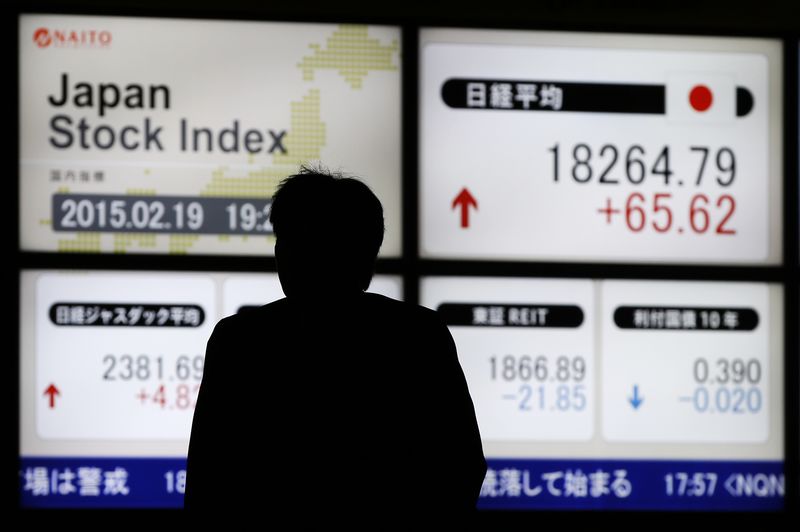(Bloomberg) -- Japan’s stock market has been anything but steady this year. As its choppiness baffles both bulls and bears, Goldman Sachs Group Inc (NYSE:GS). is drawing attention to a pattern coined by academics as the turn-of-the-month effect.
The Nikkei 225 Stock Average has risen on the first trading day of each month from July 2016 to February 2018. The last time the gauge had a similar streak was during the 13 months ended January 2004. While this kind of anomaly isn’t exclusive to Japan, Goldman Sachs said the growth of “tsumitate” NISA, a regular savings account, could fan this trend and there could be a way to play it.
The aggregate monthly tsumitate, or recurring, investment from Japan’s individual savings account known as NISA and mutual funds is estimated at nearly 50 billion yen ($470.5 million) per month, analysts led by Tsumugi Akiba wrote in a March 29 note to clients. This means the buying impact from these funds on the first trading day of each month is roughly 12.5 billion yen, about 0.5 percent of total daily value traded on the first section of the Tokyo Stock Exchange, according to the research report.
Goldman notes the current purchase impact has yet to be “too large.” But as growth of tsumitate investment is encouraged under a new NISA scheme promoted by the government, Akiba said the strength of the turn-of-the-month effect in Japan could continue. Rebalancing a portfolio based on knowledge of this trend may improve performance without implementing other strategies, he said.
Timing Trades
“Value strategy is best to be executed beginning of the month and unwind at the end of the month,” Akiba wrote in the report. “On the other hand, 12M price momentum is best to be executed in the middle of the month and unwind at the end of the month to benefit from the TOM Effect.”
The Nikkei 225 gained 0.2 percent to 21,503.63 as of 9:16 a.m. in Tokyo on Monday, while the Topix index added 0.2 percent to 1,719.27.
In October, a total of 103 eligible funds told the Financial Services Agency that they intend to offer the new installment-type Nippon Individual Savings Account. As a part of Japan’s long-running campaign to encourage individuals to unleash their massive cash holdings, the government said in 2016 that NISA investments will be tax exempt for 20 years. Previous NISA accounts had a five-year exemption.
(Adds equity performance in penultimate paragraph.)
